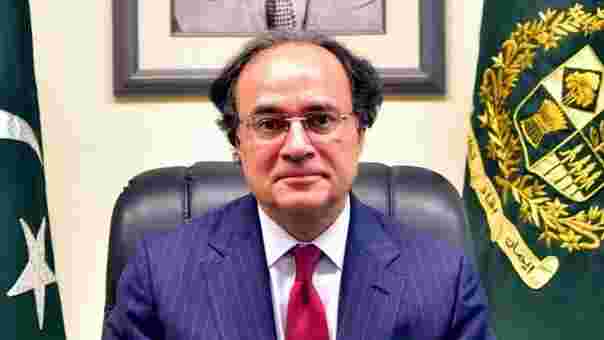Islamabad, June 23, 2025 – Federal Finance Minister Muhammad Aurangzeb on Monday unveiled a broad array of relief measures incorporated in the federal budget for fiscal year 2025–26, following recommendations by the National Assembly and Senate finance committees.
The minister stated that the FY26 budget is a carefully balanced roadmap aimed at economic stability, sustainable growth, and relief for the common citizen.
While concluding the general debate on the budget, Aurangzeb emphasized that the government has prioritized inclusive development, industry facilitation, and protection for lower-income groups. A major relief initiative announced was for the salaried class. The income tax rate for individuals earning between Rs600,000 and Rs1.2 million annually has been cut from the proposed 2.5% to just 1%. Those earning up to Rs3.2 million will also see substantial tax relief.
Clarifying pension-related concerns, Aurangzeb assured the House that pension commutation and gratuity will remain exempt from tax. Only those receiving pensions exceeding Rs10 million annually will be taxed, while citizens over 75 years of age will continue to enjoy full exemption.
In response to public concern over solar energy costs, the minister announced that the previously proposed 18% sales tax on imported solar components has been reduced to 10%, and will now apply to only 46% of items—translating into a modest 4.6% price impact. He warned hoarders and market manipulators of strict action for creating artificial shortages or price hikes ahead of tax enforcement.
Under Prime Minister Shehbaz Sharif’s special directions, Aurangzeb said the powers of the Federal Board of Revenue (FBR) to arrest taxpayers have been limited. Arrests in cases exceeding Rs50 million now require a court warrant, specific legal criteria, and approval from a three-member FBR committee, with judicial presentation mandated within 24 hours—ensuring relief from arbitrary detentions.
The government has also exempted residential property up to Rs50 million, commercial properties up to Rs100 million, and vehicles up to Rs7 million from restrictions previously proposed for undocumented buyers. Additionally, properties held for personal use for 15 years or more will not face withholding tax, while gains on sales of older properties (acquired before July 1, 2024) will be exempt from capital gains tax after six years.
Aurangzeb further stated that the government has rationalized tax policies in the e-commerce sector to ensure growth, and introduced corrective duties on imported raw cotton and yarn to protect local farmers and minimize market distortion.
In terms of income tax reform, the rate on inter-corporate dividends from mutual funds has been raised to 29%, aligning it with other taxable income. Returns on government securities by companies will now be taxed at 20%, up from earlier rates. A nominal tax of Rs10 per broiler chick has also been proposed, justified by the poultry sector’s low current tax contribution.
To shield the public from future shocks, Aurangzeb noted that the government is closely monitoring the impact of ongoing Iran-Israel tensions. He assured Parliament that a high-level committee has been formed to assess and manage economic risks.
A massive boost in social spending was also announced, with the Benazir Income Support Programme’s budget increasing from Rs592 billion to Rs716 billion—delivering relief to over 10 million underprivileged families. “Our aim is to transition these families from dependency to economic self-reliance through skill-building and financial access,” the minister explained.
He announced a collaborative initiative with the British Asian Trust to equip youth with employment-ready skills and a collateral-free loan scheme for small farmers owning up to 12.5 acres of land. Loans up to Rs1 million will be made available, alongside crop insurance and access to electronic warehousing.
The budget also includes a 20-year housing loan plan for low-income families and an expansion of the Women Inclusive Finance Programme, which will deliver Rs14 billion in additional funding to nearly 200,000 women in the coming fiscal year with Asian Development Bank support.
Concluding, Aurangzeb reiterated the government’s resolve to implement the budget in phases, complete ongoing development projects, and provide enduring relief while steering Pakistan toward an export-led, environmentally responsible, and documented economy.
